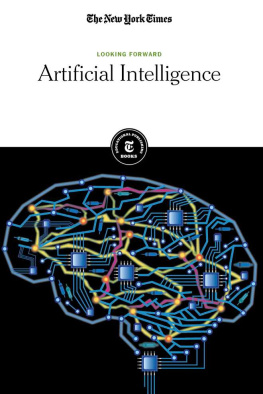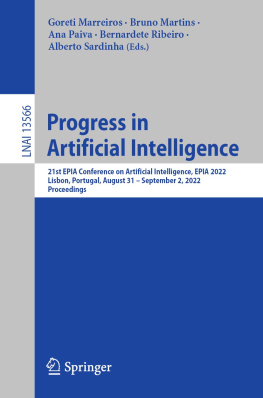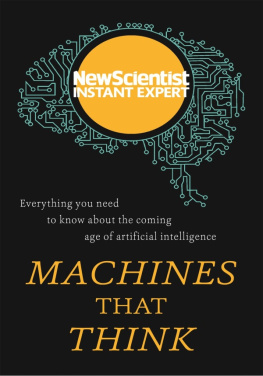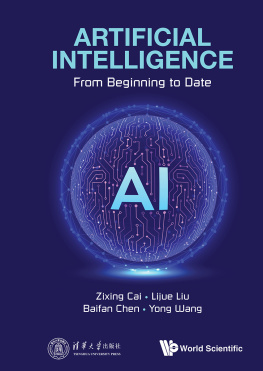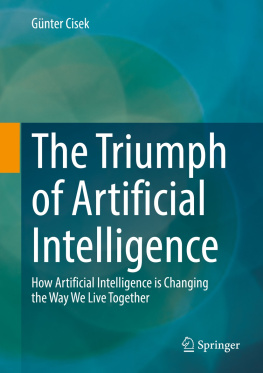Kate Crawford - Atlas of AI: Power, Politics, and the Planetary Costs of Artificial Intelligence
Here you can read online Kate Crawford - Atlas of AI: Power, Politics, and the Planetary Costs of Artificial Intelligence full text of the book (entire story) in english for free. Download pdf and epub, get meaning, cover and reviews about this ebook. year: 2021, publisher: Yale University Press, genre: Romance novel. Description of the work, (preface) as well as reviews are available. Best literature library LitArk.com created for fans of good reading and offers a wide selection of genres:
Romance novel
Science fiction
Adventure
Detective
Science
History
Home and family
Prose
Art
Politics
Computer
Non-fiction
Religion
Business
Children
Humor
Choose a favorite category and find really read worthwhile books. Enjoy immersion in the world of imagination, feel the emotions of the characters or learn something new for yourself, make an fascinating discovery.

- Book:Atlas of AI: Power, Politics, and the Planetary Costs of Artificial Intelligence
- Author:
- Publisher:Yale University Press
- Genre:
- Year:2021
- Rating:5 / 5
- Favourites:Add to favourites
- Your mark:
- 100
- 1
- 2
- 3
- 4
- 5
Atlas of AI: Power, Politics, and the Planetary Costs of Artificial Intelligence: summary, description and annotation
We offer to read an annotation, description, summary or preface (depends on what the author of the book "Atlas of AI: Power, Politics, and the Planetary Costs of Artificial Intelligence" wrote himself). If you haven't found the necessary information about the book — write in the comments, we will try to find it.
Kate Crawford: author's other books
Who wrote Atlas of AI: Power, Politics, and the Planetary Costs of Artificial Intelligence? Find out the surname, the name of the author of the book and a list of all author's works by series.
Atlas of AI: Power, Politics, and the Planetary Costs of Artificial Intelligence — read online for free the complete book (whole text) full work
Below is the text of the book, divided by pages. System saving the place of the last page read, allows you to conveniently read the book "Atlas of AI: Power, Politics, and the Planetary Costs of Artificial Intelligence" online for free, without having to search again every time where you left off. Put a bookmark, and you can go to the page where you finished reading at any time.
Font size:
Interval:
Bookmark:
Atlas of AI
Power, Politics, and the Planetary Costs of Artificial Intelligence
KATE CRAWFORD

Copyright 2021 by Kate Crawford.
All rights reserved.
This book may not be reproduced, in whole or in part, including illustrations, in any form (beyond that copying permitted by Sections 107 and 108 of the U.S. Copyright Law and except by reviewers for the public press), without written permission from the publishers.
Yale University Press books may be purchased in quantity for educational, business, or promotional use. For information, please e-mail (U.K. office).
Cover design and chapter opening illustrations by Vladan Joler.
Set in Minion by Tseng Information Systems, Inc.
Library of Congress Control Number: 2020947842
ISBN 978-0-300-20957-0 (hardcover : alk. paper)
A catalogue record for this book is available from the British Library.
This paper meets the requirements of ANSI/NISO Z39.48-1992 (Permanence of Paper).
For Elliott and Margaret
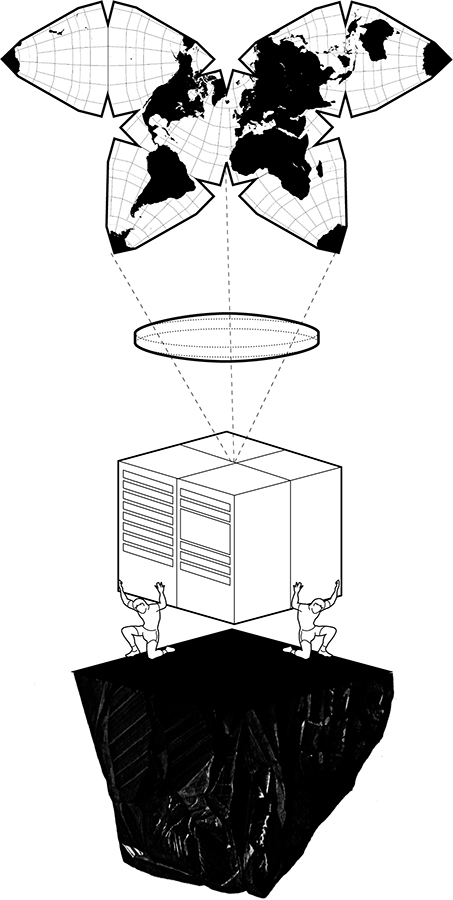
A t the end of the nineteenth century, Europe was captivated by a horse called Hans. Clever Hans was nothing less than a marvel: he could solve math problems, tell time, identify days on a calendar, differentiate musical tones, and spell out words and sentences. People flocked to watch the German stallion tap out answers to complex problems with his hoof and consistently arrive at the right answer. What is two plus three? Hans would diligently tap his hoof on the ground five times. What day of the week is it? The horse would then tap his hoof to indicate each letter on a purpose-built letter board and spell out the correct answer. Hans even mastered more complex questions, such as, I have a number in mind. I subtract nine and have three as a remainder. What is the number? By 1904, Clever Hans was an international celebrity, with the New York Times championing him as Berlins Wonderful Horse; He Can Do Almost Everything but Talk.
Hanss trainer, a retired math teacher named Wilhelm von Osten, had long been fascinated by animal intelligence. Von Osten had tried and failed to teach kittens and bear cubs cardinal numbers, but it wasnt until he started working with his own horse that he had success. He first taught Hans to count by holding the animals leg, showing him a number, and then tapping on the hoof the correct number of times. Soon Hans responded by accurately tapping out simple sums. Next von Osten introduced a chalkboard with the alphabet spelled out, so Hans could tap a number for each letter on the board. After two years of training, von Osten was astounded by the animals strong grasp of advanced intellectual concepts. So he took Hans on the road as proof that animals could reason. Hans became the viral sensation of the belle poque.
But many people were skeptical, and the German board of education launched an investigative commission to test Von Ostens scientific claims. The Hans Commission was led by the psychologist and philosopher Carl Stumpf and his assistant Oskar Pfungst, and it included a circus manager, a retired schoolteacher, a zoologist, a veterinarian, and a cavalry officer. Yet after extensive questioning of Hans, both with his trainer present and without, the horse maintained his record of correct answers, and the commission could find no evidence of deception. As Pfungst later wrote, Hans performed in front of thousands of spectators, horse-fanciers, trick-trainers of first rank, and not one of them during the course of many months observations are able to discover any kind of regular signal between the questioner and the horse.
The commission found that the methods Hans had been taught were more like teaching children in elementary schools than animal training and were worthy of scientific examination.sider whether some sort of unintentional signal had been providing Hans with the answers.

Wilhelm von Osten and Clever Hans
As Pfungst would describe in his 1911 book, their intuition was right: the questioners posture, breathing, and facial expression would subtly change around the moment Hans reached the right answer, prompting Hans to stop there. The horse was trained to produce the results his owner wanted to see, but audiences felt that this was not the extraordinary intelligence they had imagined.
The story of Clever Hans is compelling from many angles: the relationship between desire, illusion, and action, the business of spectacles, how we anthropomorphize the nonhuman, Even a system that appears to perform spectacularly in training can make terrible predictions when presented with novel data in the world.
This opens a central question of this book: How is intelligence made, and what traps can that create? At first glance, the story of Clever Hans is a story of how one man constructed intelligence by training a horse to follow cues and emulate humanlike cognition. But at another level, we see that the practice of making intelligence was considerably broader. The endeavor required validation from multiple institutions, including academia, schools, science, the public, and the military. Then there was the market for von Osten and his remarkable horseemotional and economic investments that drove the tours, the newspaper stories, and the lectures. Bureaucratic authorities were assembled to measure and test the horses abilities. A constellation of financial, cultural, and scientific interests had a part to play in the construction of Hanss intelligence and a stake in whether it was truly remarkable.
We can see two distinct mythologies at work. The first myth is that nonhuman systems (be it computers or horses) are analogues for human minds. This perspective assumes that with sufficient training, or enough resources, humanlike intelligence can be created from scratch, without addressing the
These mythologies are particularly strong in the field of artificial intelligence, where the belief that human intelligence can be formalized and reproduced by machines has been axiomatic since the mid-twentieth century. Just as Hanss intelligence was considered to be like that of a human, fostered carefully like a child in elementary school, so AI systems have repeatedly been described as simple but humanlike forms of intelligence. In 1950, Alan Turing predicted that at the end of the century the use of words and general educated opinion will have altered so much that one will be able to speak of machines thinking without expecting to be contradicted.
This has been one of the core disputes in the history of artificial intelligence. In 1961, MIT hosted a landmark lecture series titled Management and the Computer of the Future. A stellar lineup of computer scientists participated, including
But philosophy professor Hubert Dreyfus argued back, concerned that the assembled engineers do not even consider the possibility that the brain might process information in an entirely different way than a computer. As a result, less formal aspects of intelligence must be abstracted, eliminated, or approximated for computers, leaving them unable to process information about situations as humans do.
Much in AI has changed since the 1960s, including a shift from symbolic systems to the more recent wave of hype about machine learning techniques. In many ways, the early fights over what AI can do have been forgotten and the skepticism has melted away. Since the mid-2000s, AI has rapidly expanded as a field in academia and as an industry. Now a small number of powerful technology corporations deploy AI systems at a planetary scale, and their systems are once again hailed as comparable or even superior to human intelligence.
Next pageFont size:
Interval:
Bookmark:
Similar books «Atlas of AI: Power, Politics, and the Planetary Costs of Artificial Intelligence»
Look at similar books to Atlas of AI: Power, Politics, and the Planetary Costs of Artificial Intelligence. We have selected literature similar in name and meaning in the hope of providing readers with more options to find new, interesting, not yet read works.
Discussion, reviews of the book Atlas of AI: Power, Politics, and the Planetary Costs of Artificial Intelligence and just readers' own opinions. Leave your comments, write what you think about the work, its meaning or the main characters. Specify what exactly you liked and what you didn't like, and why you think so.

